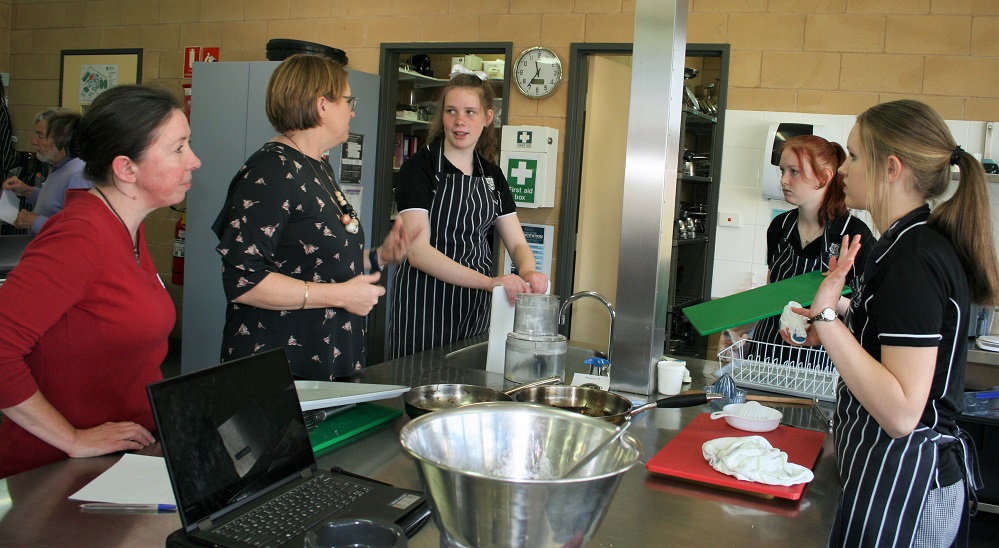“Mystery Box Challenge” students exploring the magic of cooking
Cooking is about much more than just preparing food.
As any connoisseur can attest, its benefits are many and profound — social, nutritional, environmental, psychological, and emotional.
So found a group of keen local students taking part in the second “Mystery Box Cooking Challenge” at Kinross Wolaroi recently.
Hard-pressed teams of three from Kinross, Blayney High, James Sheahan, and Orange High were all given a variety of random ingredients and, from scratch, had an hour and a half, a la Master Chef, to produce two (hopefully) delicious dishes.
“The idea is that they are utilising local produce, services, agriculture; it’s also about engagement between the local schools,” Kinross Hospitality Teacher Robyn Youll explained of the Regional Engagement Enterprise event.
Casting a keen eye over the competitors as judges were legendary local chefs, Michael Manners (formerly of Selkirks); 2011 Master Chef winner, Kate Bracks; and Alison Karbowiak.
“They were all given a selection of local ingredients and have to create two dishes for each group,” Kate explained. “But it’s not just cooking; we’re also judging on hygiene, safety, and preparation,” she added.
All three judges attested to the manifold benefits involved in the magic of preparing a meal with a disparate range of ingredients from scratch; rather than ordering pizza out or zapping a frozen dinner at home.
“It’s better for nutrition, there’s lower costs, and the greater social connections you get from preparing your own meal,” Kate explained. Michael agreed, pointing to the creativity and therapeutic benefits of creating your own meal.
“I knew a very eminent surgeon who dropped his wife off at a cooking class I was holding in the Mountains.
“He saw me making bread and the next day he was doing it himself… He now tells me, ‘cooking is my passion, I get the ingredients and we have a really good Friday and Saturday dinner’. He says, ‘it is my chance to unwind’,” Michael added.
Mass-produced food, Kate says, never tastes as good because it is usually made with huge amounts of preservatives in factories owned by multinational companies. “It’s pretend food,” she added. Alison agreed, saying: “You can taste the difference, mass-produced foods are full of preservatives, if you look at the labelling at all the additives.”
Kinross Student George Cumming offers a very good incentive for enjoying cooking: “I like eating!” he said. It’s also about being able to work with others, achieving something with your friends.”
In the heated rush of competition, Charlotte Crome from Blayney High opined: “I love being able to experiment with food; it’s a lot of fun.” Colleague Charli Davis added: “Being able to create something from a range of ingredients is really challenging.”
After an hour and a half of the students furiously rattling the pots and pans, the three wise judges were given the task of assigning the winning dishes from the four teams. Expressing their admiration at the efforts of all four groups, they decided on the James Sheahan team as overall winner on the day.
But having the epicurean’s ability to make and enjoy good food meant that all the teams, in their own way, were winners.




